
Five Things a Family Emergency Plan Should Have
Consider five ways to prepare for the unexpected.
Making an emergency plan can seem like a big task, but it doesn’t take much time to collect the information you need. You can get started by using the Sesame Street family emergency plan, or by writing down the information below:
- Full names, phone numbers, addresses, and emails of all family members.
- Work, school, or childcare addresses, phone numbers, and emails for each family member. An emergency might happen when your family is out of your home, so it’s important to know how to contact everyone.
- The location, address, and phone number of your emergency meeting place. This is the safe, child-friendly place where your family will meet if you can’t get home during an emergency.
- Phone numbers for the local police station, fire station, and family doctor. They can help your family during an emergency.
- Two or more emergency contacts.
- One person should be an out-of-town contact who may not be affected by the emergency and can help make sure you’re all okay. It’s often easier to call (or text) long-distance than to make local calls after an emergency.
- Other contacts should be close by and able to pick up children from school or childcare, come over to stay for a short time, or support your family in other ways.
Keep copies of your emergency plan in the car, in children’s backpacks, at work, and with your out-of-town emergency contact and childcare providers.
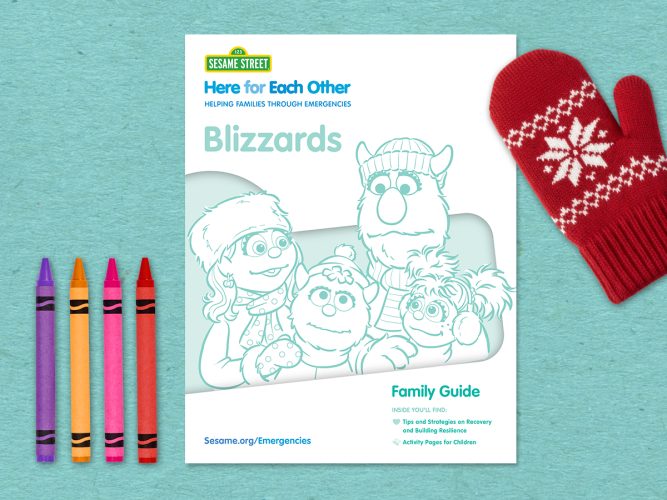
Here for Each Other: Blizzards
Help little ones feel safe and calm at home during severe winter weather.
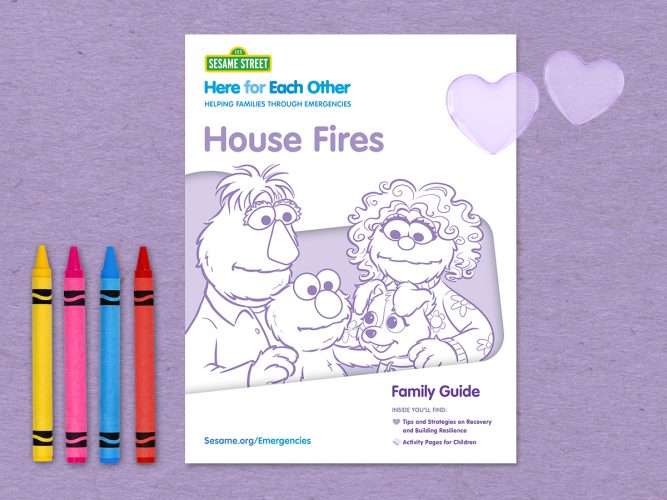
Here for Each Other: House Fires
Comforting children after a house fire.
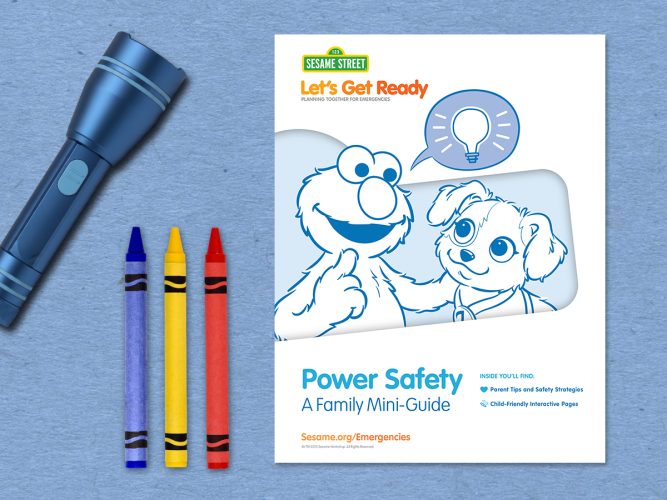
Let’s Get Ready: Power Safety
Keep the whole family safe around electricity.
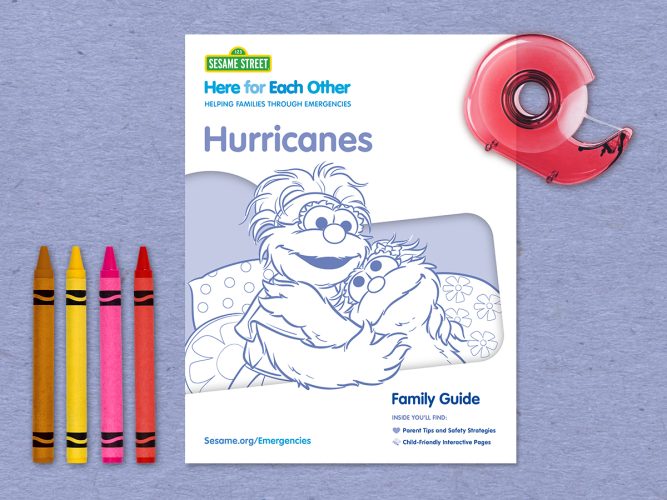
Here for Each Other: Hurricanes
Recovering from a hurricane.
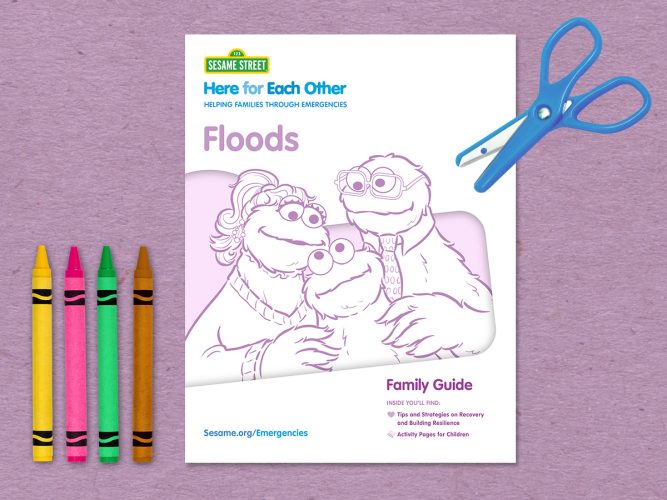
Here for Each Other Family Guide: Floods
Helping children after a flood.
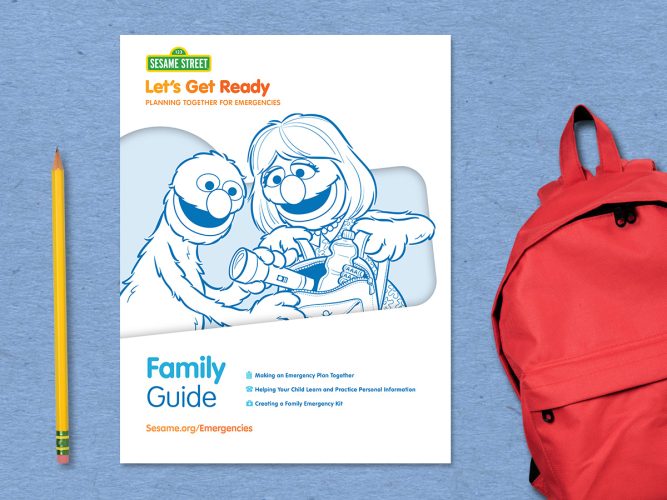
Let’s Get Ready: Emergency Family Guide
Prepare for emergencies as a family.
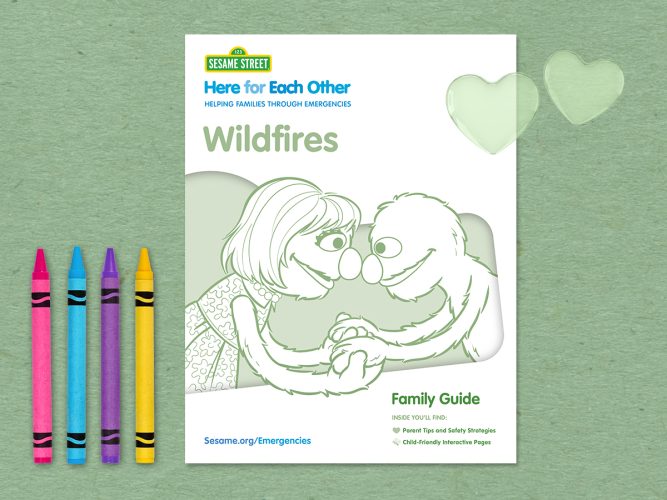
Here for Each Other: Wildfires
Support children during and after wildfires.
